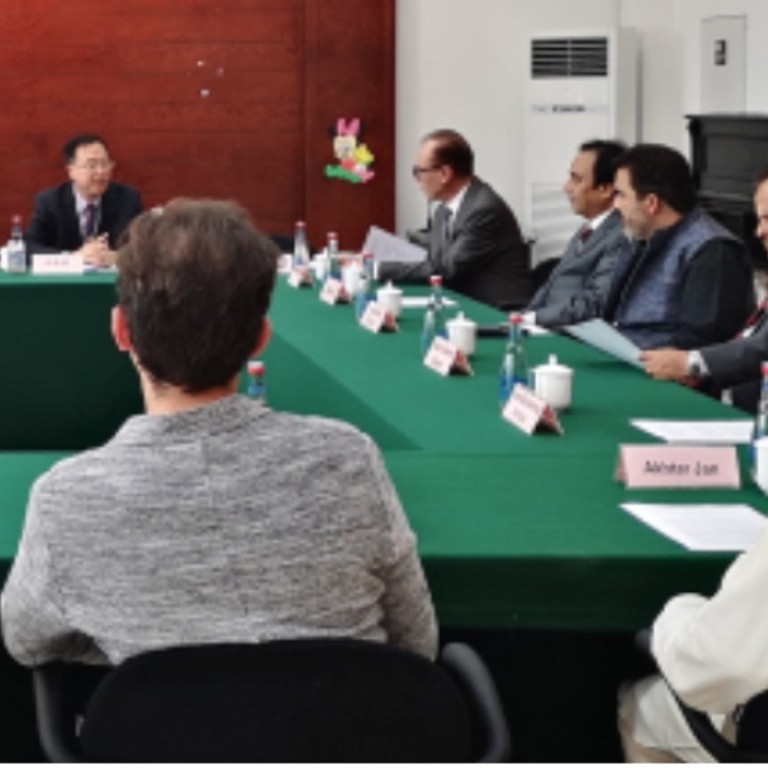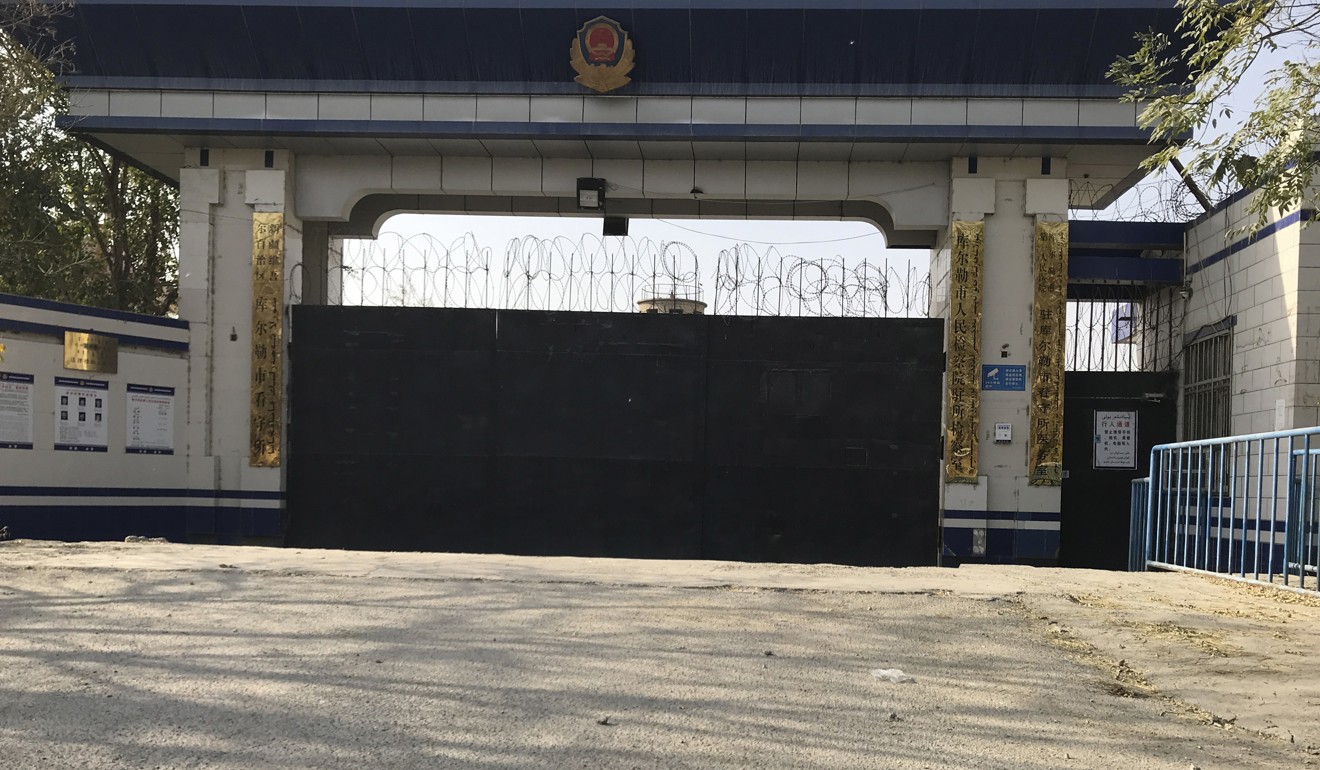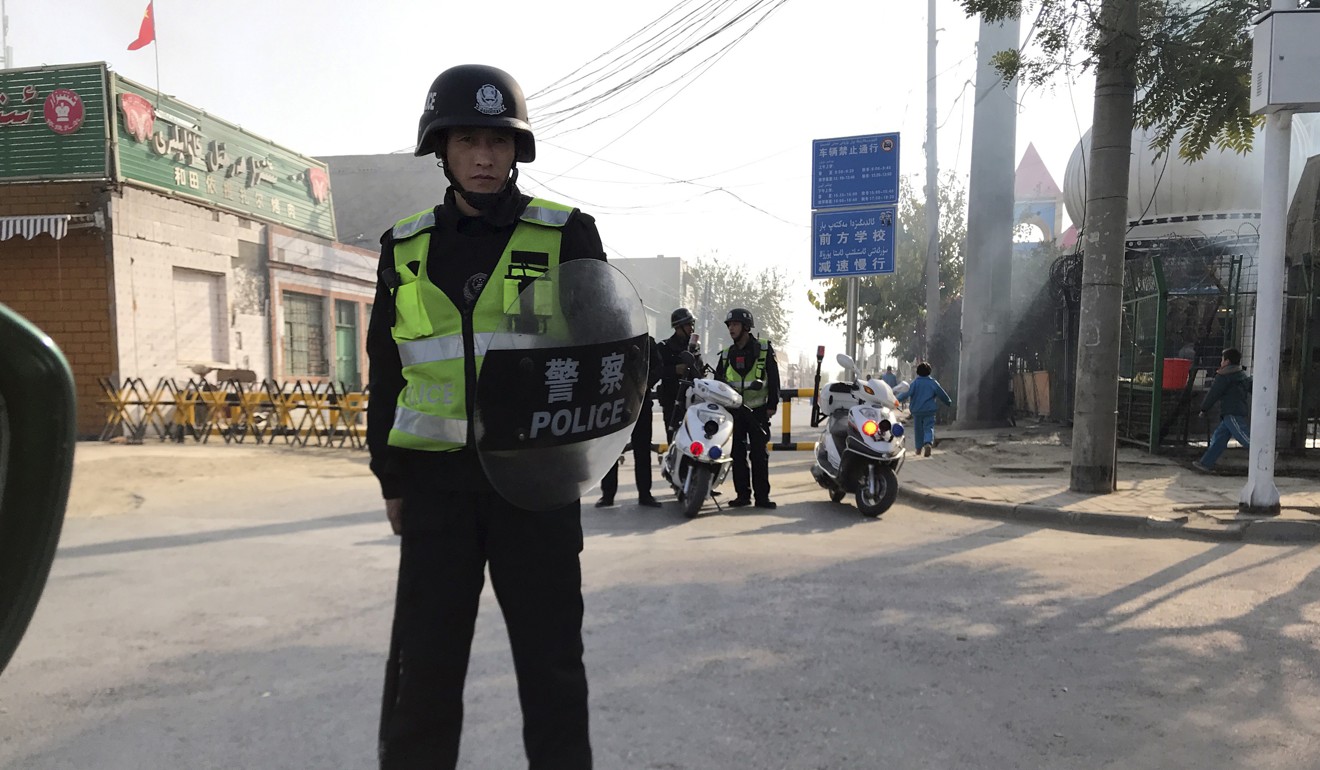
Xinjiang camps: China takes its defence of ‘re-education centres’ overseas with Pakistan meeting
Explanation at embassy in Islamabad continues shift in how China approaches the topic of camps, after Xinjiang governor’s first detailed revelations of ‘training’ for Muslim minorities
China has taken its defence of the mass detention of Muslim minorites to an overseas audience, with its diplomats holding a meeting with a group of Uygur Chinese people in Pakistan to try to garner support for Beijing’s policies in the far-western region of Xinjiang.
The meeting in Islamabad came as Beijing gave details for the first time about the sprawling network of internment camps in the region, which shares a border with Pakistan, amid rising international criticisms of human rights violations and forced indoctrination.
The overseas efforts reflect changes in Beijing’s account of the detentions, from denying the existence of the “re-education centres” to stressing the terrorism threat it claims is facing Xinjiang Uygur autonomous region, and how Muslim minorities are transformed in the camps, which Beijing said was aimed at removing extremist thoughts through vocational training.
A meeting on Tuesday in the Chinese embassy in Pakistan, chaired by consul general Shen Zicheng and attended by leaders of overseas Chinese associations and Chinese Uygur organisations, extended the new narrative.
Chinese diplomats have written to overseas media defending the policies in Xinjiang, but Tuesday’s meeting in Pakistan’s capital is the most high-profile evidence of Beijing stepping up its new narrative outside China.
At the meeting, Shen explained the “counterterrorism and stability maintenance” efforts in Xinjiang as well as the “vocational skills education and training”, a statement by the Chinese embassy said on Wednesday.
He said that “currently the entire region of Xinjiang is stable and harmonious, everyone lives in peace and contentment, and all social activities are developing in an all-round way”.
Xinjiang’s “struggle against terrorism”, Shen said, had achieved “major milestones” under the “strong leadership of the [Communist] Party Central Committee with comrade [President] Xi Jinping as the core”.
Xinjiang governor Shohrat Zakir gave extensive details of the camps to state-run news agency Xinhua on Tuesday, in which he called them “professional vocational training institutions”.
Zakir said the facilities focused on “de-extremisation education”, and that the trainees realised that “life can be so colourful” after training.
But rights advocates and legal experts say the camps have no legal basis in Chinese law, despite the government’s attempt to legitimise them. Former detainees have also said they were forced to denounce their faith and pledge loyalty to the ruling Communist Party.
A UN human rights panel estimated China may be holding as many as 1 million people in the camps, in a review of the country’s human rights record in August. China said the UN experts’ analysis had “no actual basis”.

Xiao Qian, the Chinese ambassador to Indonesia, wrote in an opinion piece in The Jakarta Post in September that the government in Xinjiang fully respected religious freedom. He said harmony in Xinjiang could not be achieved without the ethnic and religious policy of the Chinese government.
Pakistan’s religious affairs minister Pir Noorul Haq Qadri was last month quoted by newspaper The Nation as saying in a meeting with Chinese ambassador Yao Jing that China had to soften restrictions on Muslims living in Xinjiang. But Beijing denied the two officials had talked about the region.
A row between a former Pakistan diplomat and a Chinese diplomat sparked widespread discussion over the weekend.
China’s deputy ambassador to Pakistan in Islamabad, Zhao Lijian, publicly lashed out at Husain Haqqani, a former Pakistan ambassador to Washington, who had tweeted a report about Xinjiang that said detainees in the camps were required to eat pork – which is commonly forbidden in Islamic practice.
Zhao called Haqqani corrupt and “without soul”, igniting a firestorm on social media.

Pakistan and China regard each other as “all-weather friends”, and China has made massive infrastructure investments in the Gwadar Port.
Shen said at Tuesday’s meeting that the Uygur Chinese citizens in Pakistan had a role to play in promoting friendly relations between the two countries, and supporting the work in Xinjiang.
He also encouraged them to “seize the opportunities” of the China Pakistan Economic Corridor – a series of infrastructure projects – and make efforts to build a “harmonious community” of overseas Chinese citizens.

